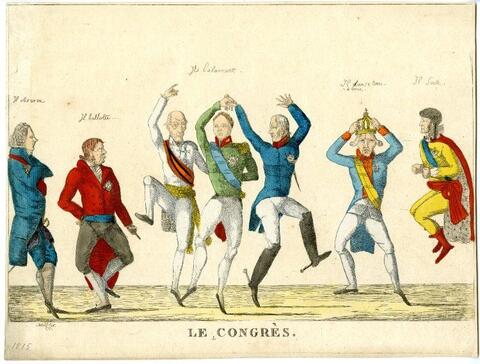HUMS 071, Intellectual Circles

Course Description:
“At times the creative imagination seems to work in isolation, when an individual, impelled by some uninstructed spark of originality, glimpses relationships or possibilities never seen before, or devises forms of expression never heard before. But most often the creative imagination does not flare in isolation. Creative minds stimulate each other, interaction and competition have a generative effect, sparks fly from disagreement and rivalry, and entire groups become creative.” -Bernard Bailyn
This course will gather some of the most insightful writings on a generally neglected phenomenon of intellectual history: the creative – sometimes destructive – dynamics of inner circles, avant-gardes, and other exclusive, informal associations of innovative minds. In some cases these are acolytes or teams surrounding an individual leader; others are self-organizing collections of distinctive personalities. The aim is to assess the significance of such societies among other perceptions of how history works: the “great man” theory, longue durée, economic determinism, etc. There also are society-shaping intellectual circles across time, largely unrecognized by education today, but there for us to discover. Ultimately, the seminar itself will be assessed as “an intellectual circle.”
One substantial book each week will be the focal point for assessing such groups from the politics of breakthroughs in the arts and sciences. At each historical turning point, the connections between a groups’ format and style will be discussed in terms of its intellectual substance. Courtiers, advisors, disciples, and disputers around Confucius, Socrates, Lincoln, Freud, Wittgenstein, and Niebuhr are among the circles considered. Groups include American Founders, quantum physicists, computer scientists, Gertrude Stein’s “Lost Generation” of Americans in Paris, “The Georgetown Set” of Cold War friends and rivals, and the Supreme Court.
Each circle will be considered in the context of its distinctive architectural or other physical surroundings.
Enrollment limited to first-year students. Preregistration required; see under First-Year Seminar Program: https://yalecollege.yale.edu/academics/preregistration-applications-and-preference-selection#FRSM
Fulfills HU distribution requirement.
Led By:

Professor Charles Hill is a diplomat in residence and lecturer in International Studies at Yale University. He is a career minister in the U.S. Foreign Service, serving in a variety of roles such as Deputy Assistant Secretary for the Middle East at the State Department, Chief of Staff of the same, and executive aid to former U.S. Secretary of State George P. Shultz.
He served as special consultant on policy to the secretary-general of the United Nations from 1992 to 1996. Professor Hill has collaborated with former U.N. Secretary General Boutros Boutros-Ghali on Egypt’s Road to Jerusalem, a memoir of the Middle East peace negotiations, and Unvanquished, about U.S. relations with the U.N. in the post–cold war period. He is also the editor of the three-volume Papers of U.N. Secretary-General Boutros-Ghali, published by Yale University Press.
His book “Grand Strategies: Literature, Statecraft and World Order” is published by Yale University Press. His “Trial of a Thousand Years: Islamism and World Order” is published by the Hoover Press, Stanford University.
Testimonials:
This course was previously offered in the Fall Semester in 2016 and 2017. Testimonials are taken from student feedback.
- “The biggest strength is Professor Hill, who is an incredible lecturer and devoted instructor. I’ve never had an instructor with such a breadth of knowledge or experience.”
- “…what I found most surprising and most interesting about this course, it that it brought up many important ideas and raised questions that I think every college student should spend time thinking about. What is the importance of humanities? The limits of science? The original purpose of theology? What shapes a college curriculum? How has the way we think change? What do we want to do in life?”
- “Professor Hill has a wealth of knowledge and his insights are enough to warrant a student’s attention to the course, but beyond that the level of understanding one gains of history, the shape that begins to form in one’s mind with each successive text, is an amazing experience to have.”
- “…a good course to take if you’re somewhat interested in Directed Studies but don’t want to commit to three courses. You learn a little bit about a lot of things: philosophy, history, literature, arts, politics.”
If you are interested or have enjoyed this course, you may wish to explore:
- HUMS 316b, World Order in Liberal Arts